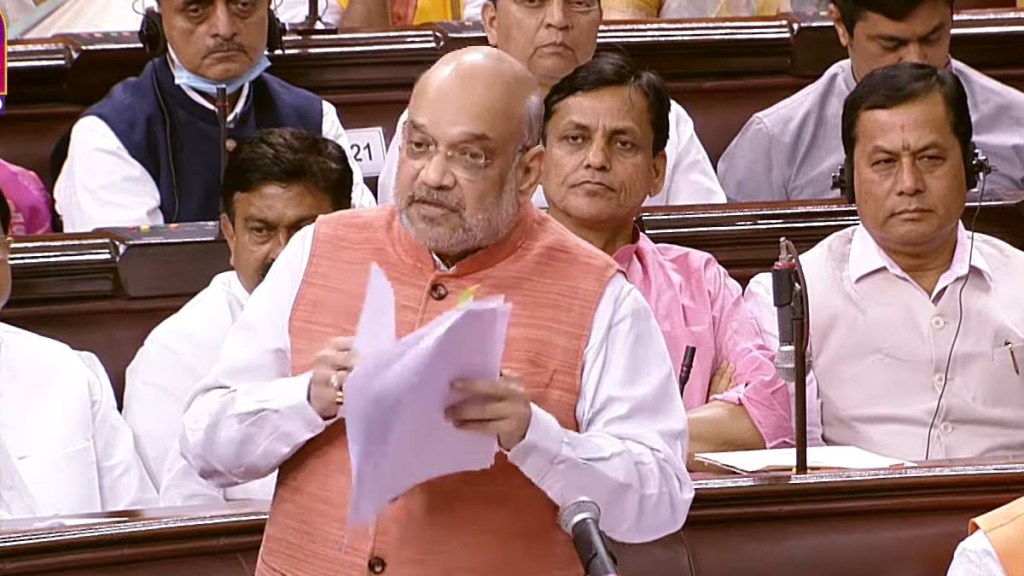The Rajya Sabha today passed the ‘The Criminal Procedure (Identification) Bill 2022’, two days after it was passed by the Lok Sabha. The Bill was introduced in the Upper House by Union Home Minister Amit Shah and seeks to authorise for taking measurements of convicts and other persons for the purposes of identification and investigation in criminal matters and to preserve records. The Lok Sabha had passed the Bill on April 4.
“The bill aims at capacity building of police, forensic team along with making scientific evidence available to prosecution agencies…The arrangement is such that it doesn’t risk privacy of citizens,” said Amit Shah while allaying the apprehensions realised by the Opposition members.
Shah reiterated that investigation cannot be based upon third-degree in this age and the government wants investigations to be based upon technology, data and information.
Opposing the Bill, Congress MP P Chidambaram termed it unconstitutional. “It’s unconstitutional. It violates the liberty, privacy and dignity of people. The Bill wasn’t referred to a select committee. The government has not taken into account the historic verdicts of the Supreme Court in Selvi and Puttaswamy cases. In the Selvi case, the court said that the polygraphy, narcoanalysis and brain electrical activation profile (BEAP) violate an individual’s rights,” said P Chidambaram.
The bill replaces the Identification of Prisoners Act, 1920. Shah had said in the Lok Sabha the bill will ensure that police and investigators remain two steps ahead of criminals. He had added that next-generation crimes cannot be tackled with old techniques and added that the government is trying to take the criminal justice system to the next era.
The bill, once it becomes an Act, seeks to provide legal backing to investigative agencies for taking body measurements of alleged criminals including finger impressions, iris and retina scans, physical and biological samples. The Bill also allows the National Crime Records Bureau to collect, store and preserve the record of measurements.
In the Lok Sabha, Congress member Manish Tewari had said the legislation was draconian and against civil liberties. Trinamool member Mahua Moitra said the Bill sought to replace the Identification of Prisoners Act, 1920, but the proposed law had fewer safeguards than the law enacted by British colonisers. Moitra contended that in the absence of a data protection law, the proposed measure lacked safeguards to ensure that the information collected was protected well, and could lead to violation of the privacy of an individual who has not been convicted. BSP member Danish Ali apprehended the Bill could convert India into a police state and could be used to settle political scores.

